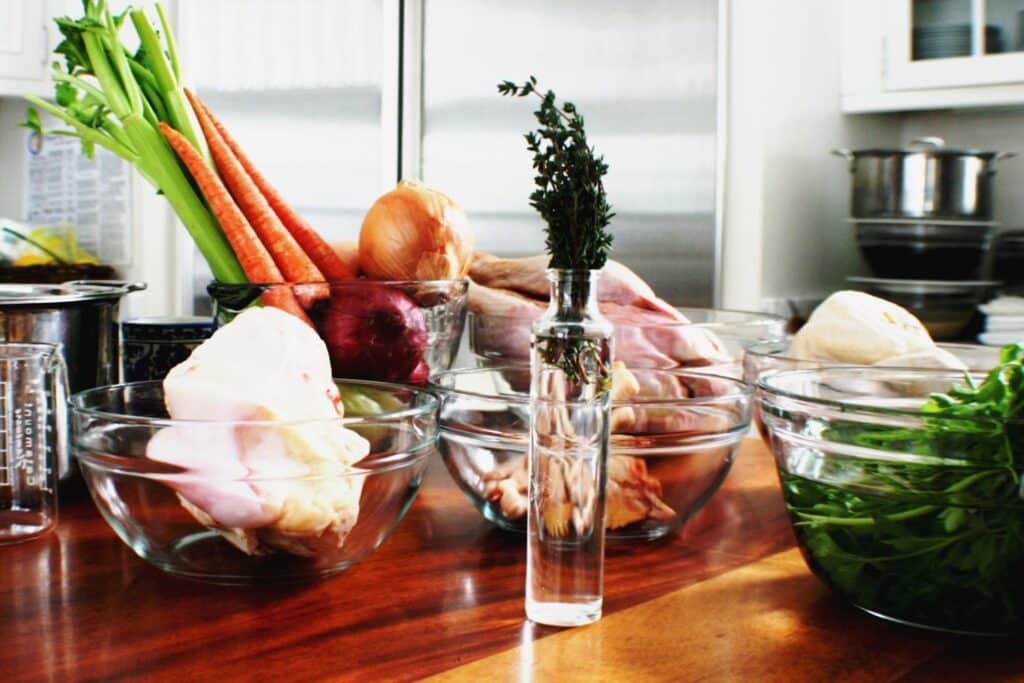Often, I have the sensation that I am a “voice crying in the desert”–but I’ll keep on crying out while people continue to look everywhere but their own kitchen for answers to their health dilemmas and “random” symptoms. I have been teaching about “nourishing, traditional food” for more 15 years now, in an effort to awaken individuals to the fundamental and foundational healing power of food.
Where did the term “nourishing, traditional food” come from?
The term “nourishing, traditional food” has become a buzzword for food that is based on the findings of Dr. Weston A. Price, and the Weston A. Price Foundation started by Sally Fallon in the late 1990s. Price was a dentist from Cleveland who traveled the world in the 1930s in search of answers to why his patients—and many Americans—were experiencing a dramatic rise in cavities, a narrowing of their jaws that resulted in crowded teeth, as well as birth defects, disease, and mental illness. (Sound familiar?) Dr. Price wondered if these maladies were connected to what people were (and were not) eating, and so he set out to travel the world and visit peoples that had not been exposed to modern, “dead” foods, and those that had. His travels and research took place over ten years and resulted in the more than 500 page-book, Nutrition and Physical Degeneration. In that book, Price presented his findings—which made the connection between what people ate with the state of their health (or disease). Those findings hold true today.
What did Dr. Price find when he analyzed the diets of the peoples he visited in the 1930s and 1940s? In comparison to the American diet of his day, what they ate provided at least four times the water-soluble vitamins, calcium, and other minerals, and at least TEN times vitamins A, D, and K2. That was 80-90 years ago. Today, the vitamin content of our food would be even lower due to industrial farming, GMOs, and food processing, to name just a few reasons. No wonder we are not well.

Photo by Monica Corrado
What is Nourishing, Traditional Food Today?
“Nourishing, traditional food” is food that is grown, prepared, and cooked to maximize its nutrients, make those nutrients “bioavailable” (that is, available to be used by the body) and make them easy to digest. Some of them are “nutrient-dense” foods, those that provide a high amount of nutrients in a small portion. All of them provide the building blocks needed for a healthy body and mind for you, your children, and future generations. These days, when a large percentage of children are born already sick, when allergies and autism and autoimmune diseases are on the rise and are considered “commonplace”, it makes sense more than ever to get back to basics. That means finding the best food you can find and going back into the kitchen to prepare those foods in traditional ways.
What are traditional ways of cooking?
Traditional cooking methods- those methods that either unlock nutrients in food or maximize them-are those your grandmother and great-grandmother used every day. They include lacto-fermenting, sprouting, soaking, souring, and culturing. They are so easy to do once you know how, and the impact on your health is so worth it! It is my job to make it easy for you. Stay tuned for my next article, as I explain the “what, why and how” of each of these methods.
(If you would like to read ahead, I invite you to pick up my latest book, The Complete Cooking Techniques for the GAPS™ Diet. Don’t worry, the book is for everyone-not just those on GAPS!)
Monica Corrado, MA, CNC, CGP is a teaching chef, Certified Nutrition Consultant, and Certified GAPS Practitioner who is passionate about illuminating the connection between food and well-being. A member of the Honorary Board of the Weston A. Price Foundation for almost 20 years, Monica is a dynamic teacher, speaker, consultant, and author who lives to share the tools, knowledge and inspiration to cook nourishing, traditional food. Monica is also The GAPS (Gut and Psychology Syndrome™) Chef”, and teaches cooking for the GAPS diet for Dr. Natasha Campbell-McBride’s GAPS Training team.
You can find her at www.simplybeingwell.com or her Facebook page.






